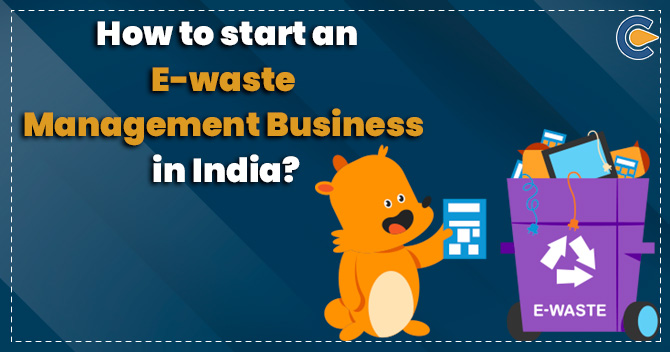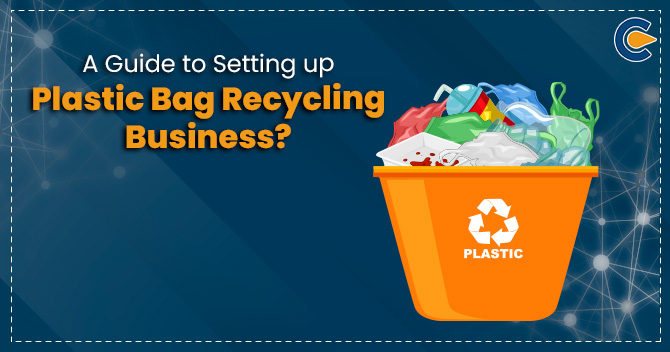Plastic is one of the most popular raw materials that is used by the majority of people in the world. It is an inexpensive, durable and lightweight material having the property of moulding into any shape of the product. With these many advantages and positives, plastic dominates the product market, from being used as daily household tools to big machines.
But, as everything has its flaw, similarly plastic which is so widely used, is responsible for causing maximum pollution in the environment. It is estimated that around 4% of the world’s petroleum which is a very useful and non-renewable resource, is used during plastic production, while 3-4% is utilized during the manufacturing process. Therefore with this much of exhaustion of natural resources, it is very important for us to keep in mind the proper management of plastic and open the market for more recycling businesses, for example, the Plastic Scrap business.
Increasing Plastic Waste
Plastic has been used for a long period of time, gaining popularity during Industrialization, starting from the 1950s to ’70s with a small quantity of consumption then seen a staggering rise during the 1990s till now. This has led to the world slowly and steadily coming to the realization of the evils of using plastic and its non-biodegradable properties. This rapid increase in the plastic waste can be blamed for the rapid increase in urbanization, use of plastic in every aspect of life, including food and vegetable packaging, as well as an increase in the reach of retail chains.
It is estimated by the Ministry of Petroleum and Natural gas that per capita consumption of Plastic in India will be 20 Kg by 2022. With the central pollution control board report recording the 8% contribution of plastic in solid waste, Delhi is number one, followed by Kolkata and Ahmedabad in the matter of producing the maximum quality of plastic waste. Along with this, during the latest reports as per Union Environment Minister, India generates around 3.5 million tonnes of the plastic waste every year, with only 60% is being recycled. In contrast, the remaining 40 % is either dumped in the landfills or secluded areas or is burned, both of which cause both environmental as well as health hazards.
Plastic, derived from the Greek term “Plastikos”, is defined as material which is fit for moulding, indicating the various valuable properties of the plastic, including plasticity and malleability. There are many different categories of plastic, but the single-use plastic is known to cause maximum environmental damage.
The single-use plastic includes:-
- Low-density polyethene includes containers, bags, food packaging film or trays.
- Polypropylene microwave dishes, bottle caps, single-use face masks or potato chips bags.
- Polystyrene includes cutlery, plates and cups.
- High-density polyethene, which includes shampoo bottles, freezer bags, ice cream containers and milk bottles
- Polyethene terephthalate (PET) includes Water Bottles, Biscuit trays, and dispensing containers.
- Protective Packaging and hot drink cups are included in Expanded Polystyrene (EPS)
EPR Responsibility of the producers’
Responsibility levied on producers’ regarding the management of products which are declared as waste and are of no use to the consumers is defined as Extended Producer’s responsibility. This definition makes producers responsible for the collection, segregation and transportation to the authorized waste disposal facility of the plastic waste, whether by themselves or by delegating the duties to the third party like the registered producers’ responsibility organization.
For applying for EPR Application, the producers have to fill the required form as per Forms I, II and III according to the business while attaching all the signed and authorized documents with the application. Then this application is submitted to the concerned state pollution control board as per the individual guidelines of all the states. After the scrutiny of the application and the documents submitted, the certificate is granted.
The documents required for the EPR Application include:-
- Address Proof
- PAN Card
- GST Certificate
- Certificate of incorporation in case of the company
- Factory license
- Layout/unit plan
- MOA (Memorandum Of Association)
- AOA (Articles of Association)
Setting up Plastic Scrap Business
The process of setting up a plastic scrap business include process such as: –
- Collection of Plastic scrap through local bodies, rag pickers, collection drives, scrap dealers or Producers’ responsibility organizations.
- Sorting different types of plastic scrap into different categories.
- Washing of plastic scraps
- Shredding and resizing
- Identification of shredded plastic and separation of the pieces
- Compounding that is melding plastic to convert it into pellets and granules
Basic requirements for setting up plastic scrap business
For setting up a plastic scrap business, some basic requirements need to be fulfilled:-
- Firstly the producers have to arrange for the land of appropriate size as per the size of the unit, equipment and utility.
- After the land is arranged, the producer also needs to arrange the small room or enclosed space within that land.
- Then the plastic scrap business requires the proper machine to function and operate.
- And at last, the workers and technicians with proper knowledge and work experience are hired.
Process of setting up the plastic scrap business
For setting up a plastic scrap business, one has to go through a lengthy process and have to submit a lot of documents so that it becomes easier for the authorities to verify and track the activities of the business owners.
Therefore, firstly in the starting, the business owner or the producers needs to register as per Plastic Waste (Management) Rules, 2016 under Rule 13 with the Concerned State Pollution Control Board. The process of registration includes: –
- Firstly sign up to the official site of the state pollution control board, which will automatically generate the Industry Registration ID.
- After the Industry Registration ID is generated, the producer has to register the manufacturing unit/ plastic scrap business as per the categories of the company established like LLP, Public Limited Company, One Person Company, Private Limited Company, Partnership[ firm and sole partnership
- After that, the business owner has to fill out Form II once they have a login to the official site.
Form II requirements
- Recyclers’ Name and Address
- The authorized status of disposal units
- Authorized person information
- Number of workers in the facility
- Details of the Products and production capacity
- Amount of waste generated during the process
- Starting date of Manufacturing facility
- Consent certificate validity status
- Flow diagram of the production process
- Waste collection and transportation
- Occupational safety and health aspects etc.
With Form II, the following documents are required to be submitted:-
- Proof of sale in more than two states (GST/Tax invoice)
- Certificate/Registration authorized by state pollution control board/Pollution Control Committee
- Certificate of Consent from Air and Water Act
- Extended Producers’ Responsibility Action Plan.
- Agreement of Producers’/Importers/Brand Owners’ with Waste Management Act (If Applicable)
Consent certificate under Air and Water Act
The business owner must apply for a certificate of consent as a mandatory practice regulated under The Air and The Water Act[1] from State Pollution Control Board. The business owner of a plastic scrap business has to apply for two types of consent.
- Consent to establish or No objection Certificate required by the manufacturer for establishing the industry.
- Then consent to operate is required after the industry is established and is now ready to operate. It is acquired only after the certificate to establish is issued.
Conclusion
When calculated, it is found that proper management of plastic waste and recycling of plastic saves around 80% of the total energy which is spent on the production of new plastic, ultimately reserving the precious Natural resources which are non-perishable. However, India’s scrap business and recycling market is increasing at a steady pace of 6.06 million tonnes in the financial year 2021, which is estimated to grow to 12.43 Million Tonnes by the Financial Year 2030 with the rate of 6.98% by the financial year 2030. There is still a considerable quantity of plastic that is disposed of at the nearest water body, on secluded land or burned, creating more pollution. Therefore it is the high time we address these issues and encourage the business which can help in plastic management.











